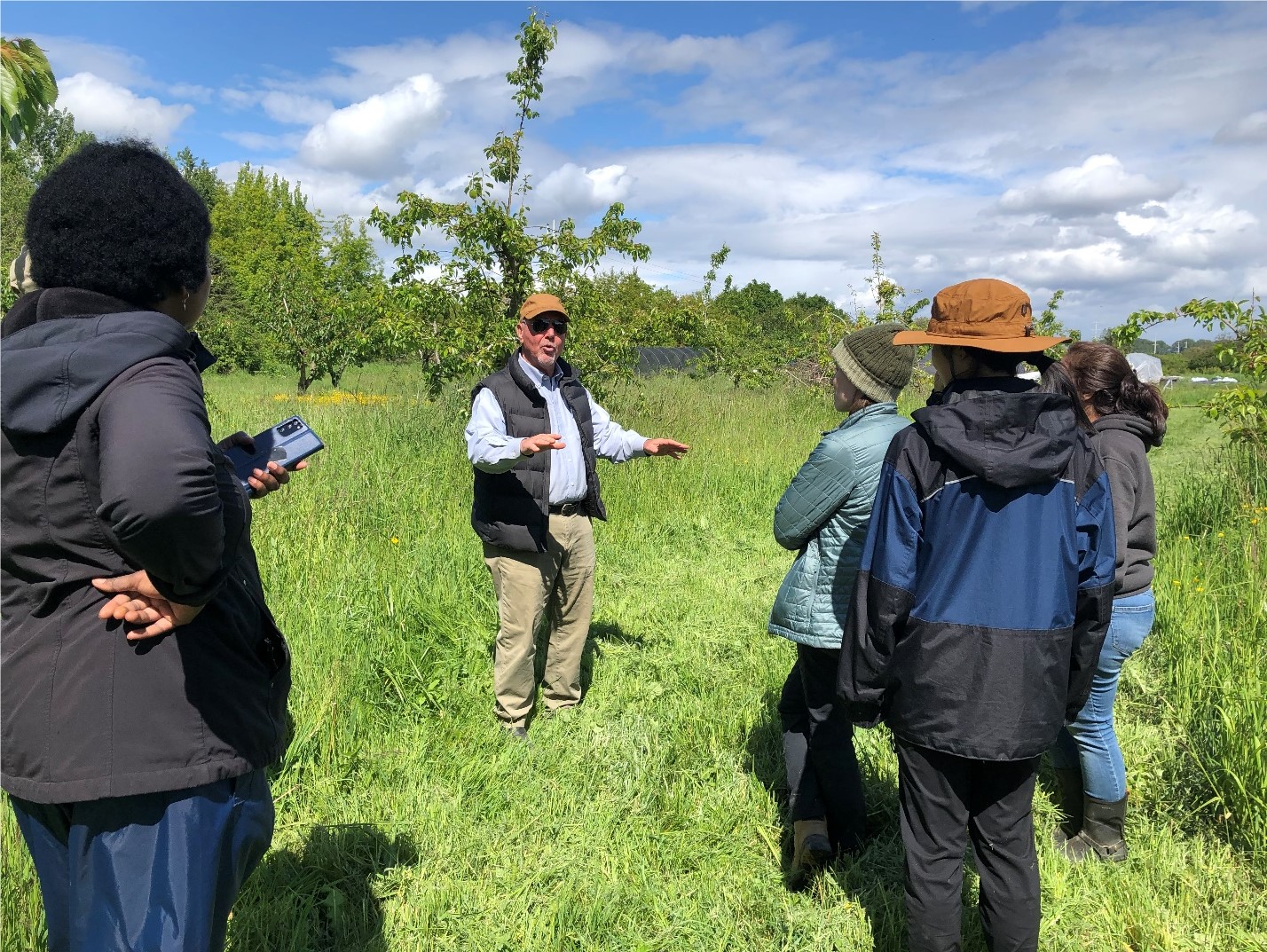
Fruit Tree Pruning Workshop on Saturday, March 29, 2025, 9am - 4pm
The Art and Science of Fruit Tree Pruning: A Hands-On Workshop for Bountiful Harvests
Join us for an engaging and informative workshop on fruit tree pruning! Learn the art of shaping and maintaining trees and shrubs from our expert instructor, Dr. Kent Mullinix. Whether you're a beginner looking to refine your skills or an experienced gardener wanting to learn new techniques, this hands-on workshop is perfect for you.
Don't miss out on this opportunity to enhance your knowledge and meet other plant enthusiasts!

What You'll Learn:
- Basic tree biology and how it relates to pruning
- Tools and techniques for effective pruning
- Best times to prune different types of fruit trees
- Pruning for tree health and fruit production
Managing tree size and shape
Rundown:
9 am - 12 pm: Theoretical session on pruning principles and comprehensive knowledge
12 pm – 1:15 pm: Lunch and transit to the KPU farm (Please bring your lunch. You can enjoy your lunch in the campus canteen area. There is also a food court in Lansdowne Mall near the campus.)
1:15 pm - 4 pm: Practical session on fruit tree pruning on the farm
Location:
Morning Theoretical Session:
Room 2060, KPU Richmond Campus, 8771 Lansdowne Rd, Richmond, BC, V6X 3V8
Afternoon Practical Session:
KPU Research & Education Farm, 13840 Gilbert Road, Richmond, BC, V7A 1X7
Who Should Attend: This workshop is ideal for home gardeners, orchardists, and anyone interested in learning the art and science of fruit tree pruning. Whether you're a beginner or have some experience, you'll gain valuable insights to improve your pruning skills.
What to Bring:
- Pruning tools (if you have them)
- Notebook and pen
- Weather-appropriate clothing and sturdy footwear
- Simple lunch
Cost: $200 per participant (plus GST) - non-refundable. An online payment link will be sent to you after registration process is completed.
Parking: there are pay parking on KPU Richmond Campus ($5 for all-day), and street parking near the KPU Research and Extension farm along Dyke Road.

Instructor:
Kent Mullinix, Ph.D. - Director of the Institute for Sustainable Food Systems
Dr. Mullinix has extensive applied research and knowledge mobilization experience, spanning a 46-year agriculture and food systems career. Mullinix has lived and worked on a diversified family farm in central Missouri, owned and operated (with his family for 15 years) a pear orchard on the eastern slopes of the Cascade Mountains, and for 14 years provided direct oversight for the planning, establishment, and management of a 45 acre organically farmed apple, sweet cherry, and peach teaching and demonstration orchard in north-central Washington.
Mullinix's research focuses on ecologically sound crop production, agriculture education programming, sustainable agriculture and food systems, and family-based agriculture revitalization as a foundational and integral element of sustainable society. He also led the conceptualization and implementation of the Richmond Farm School. Mullinix is an Adjunct Professor in The Faculty of Land and Food Systems at the University of British Columbia and serves on the editorial board of the North American Colleges and Teachers of Agriculture Journal.
Mullinix attended the University of Missouri where he earned a B.S. in Agriculture (major in horticulture with an emphasis on fruit and vegetable production), M.S. in Horticulture (specializing in Pomology), and Ph.D. in Agriculture Education (specializing in curriculum and program development, crop sciences and soil conservation). He also earned a Ph.D. from the University of British Columbia in Plant Science (specializing in integrated pest management). He is a Professional Agrologist - British Columbia Institute of Agrologists. Before joining KPU, Mullinix held the Endowed Joint Chair in Pomology and was an Associate Professor (fruit crops production/ degree program administration), at the Department of Horticulture and Landscape Architecture, Washington State University. Prior he was a fruit crops research specialist for the Universities of Missouri, Minnesota, and Kentucky.
About KPU Richmond Farm School:
The Richmond Farm School operated by the Institute for Sustainable Food Systems (ISFS) at KPU, aims to inspire community-focused, small-scale organic, regenerative agriculture through knowledge mobilization and hands-on training.
We strive to empower individuals to take their first step towards growing their own food and becoming farmers while positively contributing to the robust regional food systems. The Farm School takes place at the 8-acre KPU Research and Teaching Farm on the Garden City Lands in Richmond and operates on the 1/4 acre of land to provide participants the opportunity to engage in learning about small-scale organic vegetable production. This scale of vegetable production encourages intensive management, quick turn-around of crops, and low capital investments.
This 7-month Farmer Training Program at Richmond Farm School offers hands-on training supplemented with weekly theoretical discussions. It will be a great time to learn about all different kinds of crops, taste the freshness of newly harvested vegetables, get connected to the land, socialize with people in a safe and appreciative atmosphere, and build a community supporting the sustainability of our local food systems.
Immerse yourself in the Richmond Farm School and learn everything from soil health, plant life cycles, organic vegetable production, basic marketing principles, to ergonomic small-scale farming practices